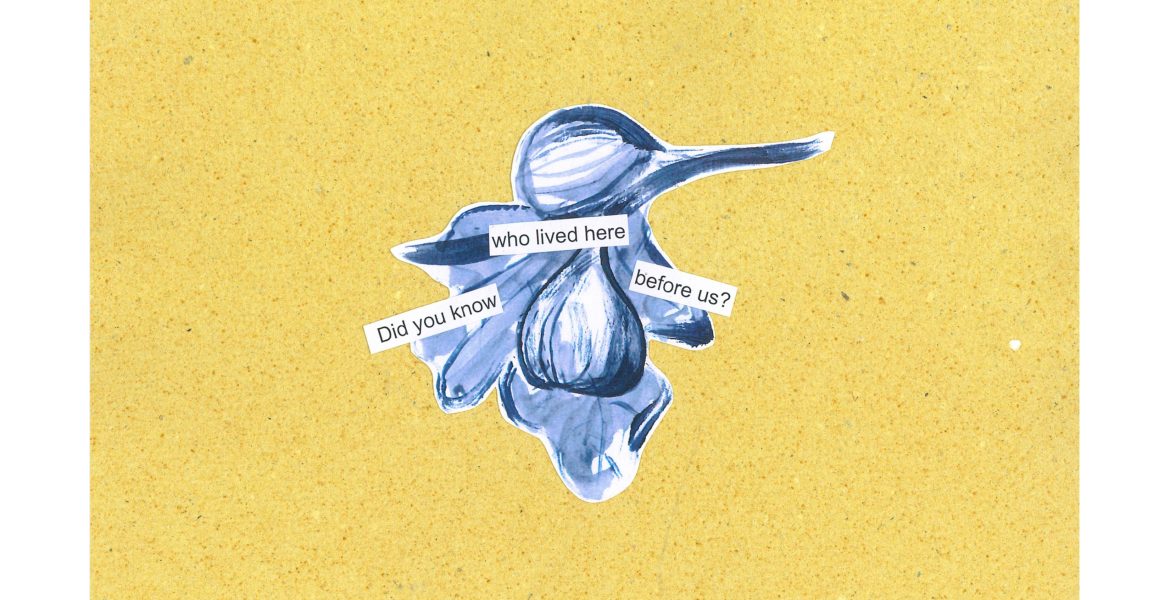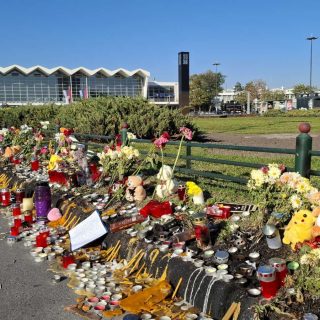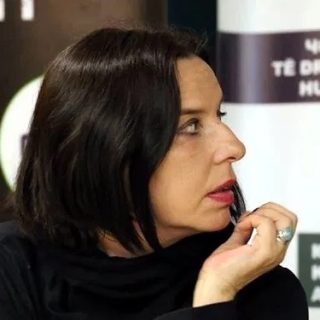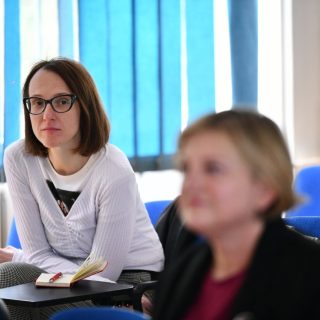I live in a house that holds more memory than I will ever know. I can feel it carrying the weight of things left unsaid.
My father bought it in the early 2000s, after the war. A small home in a quiet neighborhood, with a fig tree in the backyard and sunlight pouring into the kitchen.
When he bought it, we were living in a village about ten kilometers from the city. School, work, daily life — they all required effort, travel and time. For our family, moving was a new beginning: the war was behind us and this new house promised an easier day-to-day ahead.
I was a child refugee during the Kosovo war. I don’t remember most things, but there are things that have never left me. I remember growing up with the stories my mom would always tell: how we left the village of Saradran to seek refuge in Tirana; how she, my brother and I slept hiding in open fields; the cold and rainy nights; the silence adults kept to shield us.
When the war ended, we returned. My father found this house, bought it legally, and began to work on it. He painted it, redecorated it, cleaned it; he attended to every corner with care. He wanted it to feel truly ours. He wanted a better future for us.
But the house wasn’t new, and one day, I must have realized it. I asked my father, “Did you know who lived here before us?” He nodded. “Yes,” he said quietly. “His name was Misura. He’s in Belgrade now. He has two sons, I believe.”
His answer stayed with me. I imagined those two boys: where they played, what their voices sounded like, whether they had left in a rush or had time to say goodbye. I never asked again, and my father never told me more.
Our neighborhood was full of homes like ours, bought after the war. No one spoke about their previous owners, but I could feel their presence lingering. I found small traces: a child’s sticker on the back of a closet door, an old key no one knew what it opened. There was also a small summer house nearby, once part of their property, I think. Sometimes I’d find old drinking glasses there: thick, dusty, and still holding a faint taste of… time?
As a child, I noticed everything: the smells, the light, the quiet. I listened to the walls, to the hum of the house at night. I felt the difference between living in a place and belonging to it. Despite my father’s best efforts, the house was shelter, but not yet home.
Over time, life left its own marks. We planted flowers in the front yard and rebuilt everything. We argued and celebrated, burned food and laughed, slammed doors and opened windows. I had birthdays there and worried about exams. The fig tree bloomed every year, and everybody loved it — until we cut it down to expand the house. Slowly, the house grew into us, and we into it. But I think it never fully stopped being someone else’s too, in a way.
Years later, I visited Belgrade for the first time. I wanted to see it for myself: not through headlines, politics, or other people’s arguments, but through my own eyes. I went with others who, like me, were looking for something.
We were asked to bring symbols of a time when we coexisted, before the collapse of Yugoslavia. I found myself talking about the house — our house — and how it had once belonged to someone who, for all I knew, was living there, somewhere in the city. In my hand, I held an electricity bill. They still arrive at my place with Misura’s name on them.
I didn’t go to Belgrade to forgive or accuse. I went to understand. As I walked through the city, I caught myself thinking, “This doesn’t change history. It doesn’t change what happened. But it also doesn’t change the fact that people lived there. And that I live there still.” That contradiction stayed with me. It hasn’t gone away. How do I make peace with living in a house that once belonged to someone my country calls an enemy, and whose country calls me the same?
Living in post-war Kosovo means living with inherited memory. I realize it is not just our own, but also the memory of those who left and of those who stayed silent. We, children raised by war, don’t remember the politics.
We remember the shadows in the hallway, the look on our parents’ faces when the power went out, the voices dropping when certain names came up. We remember the smells: the dampness of basements, the starch of clean sheets, the fig blossoms in late summer. These fragments stay with us, stubbornly.
Sometimes, I find myself thinking about the former owners of our home. I wonder if they remember the place, if they talk about it. If those two boys ever ask their father about the house with the fig tree. But wondering doesn’t change the past. It doesn’t undo the war. It doesn’t erase the loss or make it any fairer. It is about making space for what was, what is, and what continues.
The house is mine now. And it isn’t. Both are true. I live in a space that was once someone else’s and is now part of me.
My father gave us more than a roof. He gave us a sense of future, closer to school, closer to normalcy. In that house we got to grow up without looking over our shoulder. That’s what the house means to me. Not forgetting, but moving forward.
Though we removed the fig tree to expand the house, its memory stays rooted in its place. That’s what memory does: it takes root. Sometimes in silence, sometimes in stories. Sometimes in the ordinary act of living in a house that remembers more than it shows.
We don’t always choose the stories we carry, but we can choose how we honor them. And maybe that’s enough: not to heal everything, but to live fully with the truth.
Illustration: Emilia de Haën / Pro Peace
Donjeta Rexhbogaj is a law graduate with a passion for transitional justice. She has researched post-war justice in Kosovo at the University of Graz and worked in the legal office of BIRN Kosovo. Donjeta enjoys writing on human rights, reconciliation and dealing with the past.




